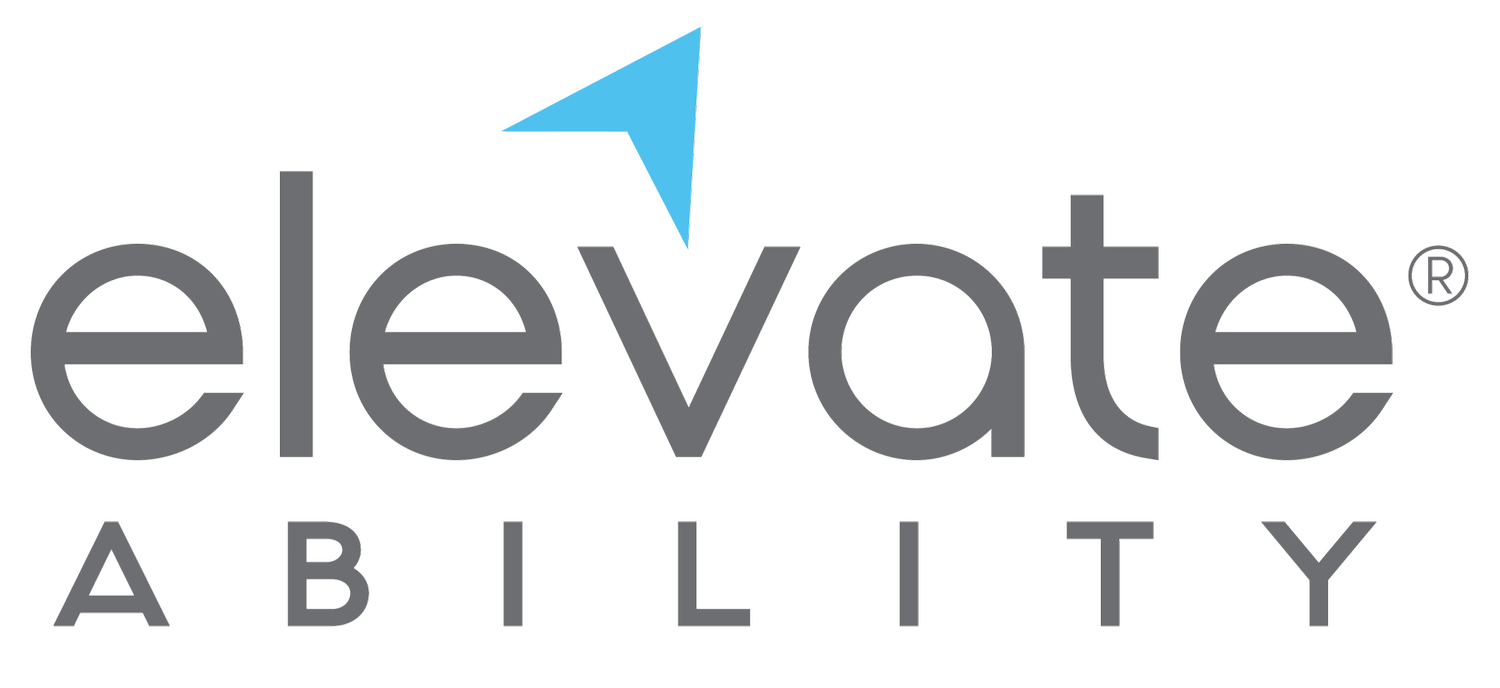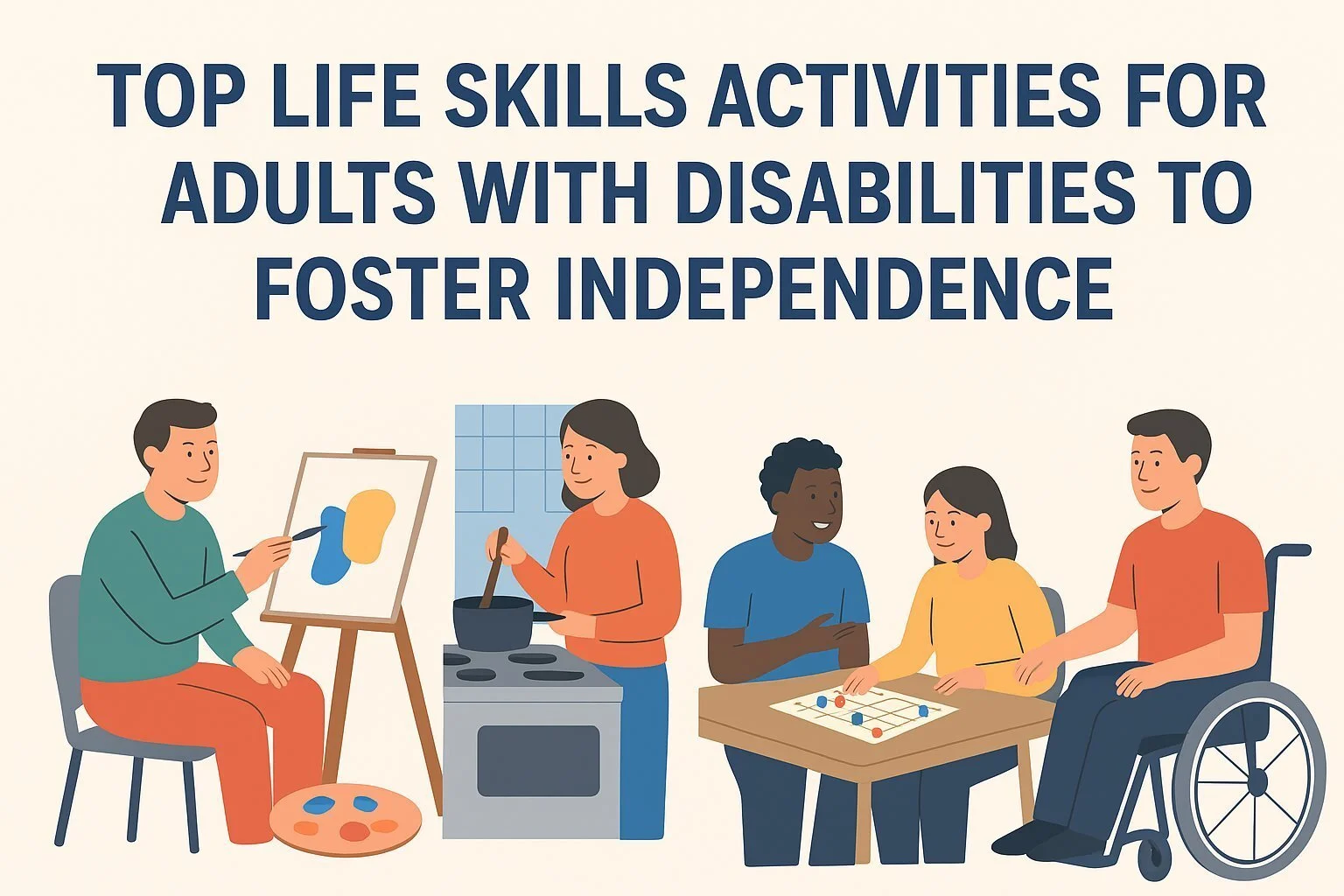Top Life Skills Activities for Adults with Disabilities to Foster Independence
Structured activities for special needs adults play a vital role in building independence, boosting confidence, and enhancing overall well-being. These activities are more than just ways to pass time. They provide meaningful opportunities for learning, social interaction, and personal growth. When designed thoughtfully, they empower individuals to develop essential life skills, strengthen relationships, and enjoy a greater sense of purpose in daily life.
Both day program activities for adults with disabilities and home-based activities serve as valuable tools in this journey. While day programs offer structured environments with professional support, home-based activities provide comfort, familiarity, and flexibility. Together, these approaches create a balanced pathway for skill development, helping adults with special needs build routines, explore new interests, and achieve greater independence.
The Role of Life Skills in Independence
Life skills are essential for adults with special needs because they provide the foundation for independence and self-sufficiency. Learning skills such as personal care, money management, time management, and communication allows individuals to navigate daily life with confidence and greater control.
Activities for adults with disabilities play a key role in developing these life skills. Engaging in structured tasks and guided exercises helps build self-reliance and reinforces practical abilities that can be applied at home, in the community, or in social settings. Over time, consistent participation in these activities not only improves competence but also boosts self-esteem and encourages a sense of accomplishment.
Life Skills Activities for Adults With Disabilities
Disability day program activities are designed to provide structure and routine while helping adults with disabilities develop essential life skills. These programs focus on practical learning experiences that prepare individuals for daily tasks, social interactions, and independent living. Structured activities encourage consistency, build confidence, and offer opportunities for skill development in a supportive environment.
Examples of effective life skills activities include cooking classes, which teach meal planning and food preparation, money management lessons that cover budgeting and handling transactions, and time management exercises that help participants organize their day and prioritize tasks. Engaging in these activities regularly helps adults with disabilities build independence, gain practical knowledge, and develop the confidence needed to navigate everyday life successfully.
1. Indoor Activities for Adults With Disabilities
Indoor activities for adults with disabilities provide a safe, engaging, and practical way to develop skills and have fun. Key examples include:
Art projects – Enhance creativity and self-expression.
Puzzles – Improve focus, problem-solving, and critical thinking.
Simple cooking tasks – Teach practical life skills and independence.
Simple games for special needs adults – Promote concentration, coordination, and teamwork.
These activities help adults with disabilities build confidence, maintain mental engagement, and enjoy meaningful, skill-building experiences at home or in structured programs.
2. Group Activities for Adults With Intellectual Disabilities
Group activities for adults with intellectual disabilities help build social skills, teamwork, and communication while promoting independence. Key activities include:
Role-playing exercises – Encourage practical communication and problem-solving skills.
Team games – Foster cooperation, collaboration, and healthy competition.
Group workshops – Provide hands-on learning experiences in areas such as art, cooking, or technology.
Discussion circles – Support social interaction, sharing of ideas, and relationship-building.
These activities create a supportive environment where adults with intellectual disabilities can develop essential life skills, enhance confidence, and enjoy meaningful social connections.
3. Fun Activities for Disabled Adults
Fun activities play a key role in keeping adults with disabilities motivated and engaged while supporting learning and skill development. These activities combine enjoyment with practical benefits for social, emotional, and physical growth.
Music sessions – Enhance creativity, emotional expression, and coordination.
Dance activities – Promote physical fitness, rhythm, and self-confidence.
Adaptive sports – Encourage teamwork, physical health, and goal-setting.
Drama and role-play sessions – Build communication skills, self-expression, and confidence.
Participating in these fun activities for disabled adults and fun activities for adults with disabilities not only provides enjoyment but also reinforces important life skills in an engaging and meaningful way.
4. Learning Activities for Adults With Disabilities
Learning activities for adults with disabilities focus on educational growth and the development of practical skills that support independence and personal achievement.
Literacy workshops – Improve reading, writing, and comprehension skills.
Computer basics – Teach essential digital skills for communication and daily tasks.
Budgeting exercises – Develop money management and financial planning skills.
Vocational training – Provide hands-on experience for career readiness and workplace independence.
These learning activities for adults with disabilities empower participants to gain confidence, acquire new skills, and apply their knowledge in real-life situations.
5. Social Activities for Adults With Disabilities
Social activities for adults with disabilities help build friendships, strengthen community connections, and improve communication skills.
Community volunteering – Encourages engagement, responsibility, and a sense of contribution.
Group outings – Provide opportunities for social interaction and exploration of new environments.
Game nights – Promote teamwork, fun, and relationship-building.
Coffee socials – Foster casual conversation, networking, and social confidence.
Participating in these social activities for adults with disabilities supports personal growth, enhances social skills, and creates meaningful connections within the community.
6. Sensory and Relaxation Activities
Sensory and relaxation activities are important for adults with disabilities because they support emotional regulation, reduce stress, and provide calming stimulation.
Tactile bins – Enhance sensory exploration and fine motor skills.
Aromatherapy – Promote relaxation and mood regulation through calming scents.
Sound therapy – Support focus, relaxation, and emotional balance.
Yoga – Improve flexibility, body awareness, and stress management.
These sensory activities for adults help participants develop coping skills, maintain emotional well-being, and enjoy a sense of calm and focus.
7. Skill-Building for Long-Term Growth
Targeted skill-building activities help adults with disabilities develop independence, confidence, and practical abilities for daily life.
Practicing job interviews – Builds workplace readiness and communication skills.
Personal care skills – Encourages self-reliance in grooming, hygiene, and daily routines.
Shopping exercises – Teach budgeting, decision-making, and navigation of stores.
Cooking for oneself – Develops meal preparation, planning, and safety skills in the kitchen.
These skill building activities for adults with disabilities provide practical experience that fosters autonomy, enhances daily living skills, and supports long-term growth.
Conclusion
A combination of day program activities for adults with disabilities, social opportunities, and skill-building exercises creates a holistic approach to supporting adults with special needs. We provide coaches through Elevate Ability who guide participants in developing independence, building confidence, and enhancing overall well-being.
We encourage caregivers, educators, and program coordinators to design diverse and engaging activities for special needs adults that promote learning, social interaction, and personal growth. By offering meaningful and enjoyable experiences, we help adults with disabilities achieve greater independence and experience a sense of accomplishment and joy in their daily lives.
Frequently Asked Questions
1. How do you entertain a special needs adult?
Entertaining a special needs adult involves choosing activities that match their interests and abilities. Options include art and craft projects, music sessions, cooking simple recipes, gardening, board games, or watching interactive shows. The key is to make the activity engaging, inclusive, and adapted to their comfort level.
2. What are interactive activities for adults with disabilities?
Interactive activities for adults with disabilities include group games, role-playing exercises, dance or movement sessions, storytelling circles, puzzles, virtual reality experiences, and technology-based learning apps. These activities encourage communication, social interaction, and skill-building while keeping participants engaged.
3. How to keep a disabled person busy?
Keeping a disabled person busy requires a balance of structured and enjoyable activities. You can involve them in daily routines like cooking, light cleaning, or organizing, alongside leisure activities such as painting, music, or exercise. Volunteering, day programs, or vocational training also provide purpose and social connection.
4. What are free sensory activities for adults?
Free sensory activities for adults include nature walks, listening to different types of music, exploring textured objects, deep breathing exercises, water play, or DIY sensory bins using household items like rice, sand, or fabric. These activities stimulate the senses, reduce stress, and improve focus without added cost.

